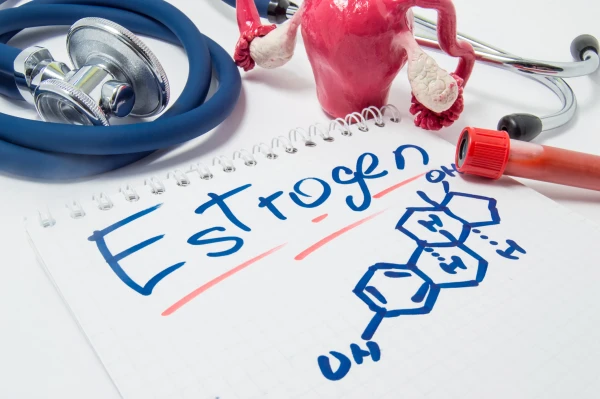
You may think that problems with desire, arousal, or sensations are just "mood," stress, or the consequences of fatigue. Sometimes this is indeed the case, but it can also happen differently: behind all this lies the hormone estrogen. It not only participates in the menstrual cycle but also significantly influences your sexuality and self-perception.
But how exactly can low estrogen levels change your sex life, why does this happen, and what can you do about it?
What Is Estrogen and Why Do You Need It
Estrogen is necessary for the body for energy, stable mood, and a fulfilling intimate life. It is produced in the ovaries and participates in a vast number of processes in your body. Here are just some of the things it is responsible for:
-
the normal course of the menstrual cycle;
-
the health and elasticity of mucous membranes, especially the vagina;
-
the production of natural lubrication;
-
bone density and heart health;
-
collagen levels, and thus skin condition;
-
sensitivity to touch;
-
libido levels, arousal, and the ability to achieve orgasm;
-
emotional stability and mood.
When estrogen levels are sufficient, you feel alive, engaged, confident, and responsive to affection, feeling desire and pleasure. But when levels drop, all of this can fade. And, more importantly, you don’t always immediately realize that the reason lies not with you, but with the biochemistry of your body.
How Low Estrogen Levels Affect Your Sex Life
Here are a few things that can happen if estrogen levels fall below normal.
Libido Decreases
Often the first thing you may notice is that desire seems to disappear. You may still love your partner and be in a good relationship, but sex no longer holds interest; you don’t fantasize or feel a pull towards intimacy.
Estrogen directly affects brain function, including dopamine and serotonin levels, which are the hormones of pleasure and motivation. When estrogen is low, all systems begin to operate more slowly, including your sexual desire.
Vaginal Dryness and Discomfort Occur
Estrogen helps keep the vaginal mucosa moist, elastic, and resistant to irritation. When levels drop, you may notice a feeling of dryness even without sexual activity, a burning or itching sensation, painful penetration, and micro-tears after sex.
All of this makes intimacy not just unpleasant — it can begin to be associated with pain, and as a result, you start to avoid it, which further distances you from your partner and from yourself.
Orgasms Become Weaker or Disappear
Low estrogen levels affect blood flow to the genitals and decrease tissue sensitivity. You may feel touches less intensely, arousal comes more slowly, and orgasm either does not occur at all or becomes more "flat."
This is not your or your partner's fault — it’s simply harder for the body to "turn on" when there is a lack of hormonal foundation.
Sex Becomes Painful
With insufficient estrogen, vaginal tissues thin and lose elasticity. Even gentle intercourse can cause micro-damage, irritation, or inflammation.
This affects not only the sensations in the body but also the psyche. Your anxiety increases, you start to fear pain, tense up, cannot relax, and even if you want intimacy, your body seems to resist.
Your Mood and Self-Perception Change
Estrogen also affects the psyche. Its deficiency can cause irritability, anxiety, rapid fatigue, feelings of depression, and lowered self-esteem.
You stop feeling desirable, sexual, attractive, and increasingly withdraw into yourself, care less about your body, and lose interest in pleasures. Then you start blaming yourself: "What’s wrong with me?" But it’s not about you; it’s about a hormonal imbalance that can and should be corrected.
Why Estrogen Levels May Decrease
It’s important to understand: a decrease in estrogen is not always about menopause or age. Yes, after age 45, hormone levels naturally decrease, but they can drop at 20 or 30 if:
-
you have recently given birth or are breastfeeding — during this time, hormonal levels change significantly;
-
you constantly live in stress — chronic cortisol elevation suppresses the functioning of the reproductive system;
-
you have lost weight sharply or are on a strict diet without fats necessary for hormone synthesis;
-
you are overtraining without recovery, especially with a low body fat percentage;
-
you are taking or have stopped hormonal contraceptives that can affect natural estrogen production;
-
you have disorders in the functioning of the thyroid gland or ovaries.
Even if you appear healthy and young externally, your internal hormonal balance may be disrupted, and this is not always felt immediately.
What to Do If You Notice Symptoms
If you notice that you lack sexual desire, often experience discomfort in your body, and your mood frequently declines, here’s what you should do.
Consult a Doctor and Get Tested
Start with a gynecologist or endocrinologist. You may be prescribed tests for estradiol (one form of estrogen), follicle-stimulating hormone, luteinizing hormone, prolactin, and thyroid hormones.
Be sure to discuss your feelings and symptoms, even if they seem insignificant to you.
Don’t Ignore Your Feelings
Low libido, pain during sex, irritability, or anxiety are not fabrications; they are specific signals from your body. The sooner you respond to them, the easier it will be to restore balance and regain your health and joy.
Discuss Possible Recovery Methods
Depending on the cause, the doctor may offer you various recovery methods:
-
local therapy, such as vaginal suppositories or creams with estrogen that act locally and have minimal impact on the entire body;
-
hormone replacement therapy (HRT) if you are in perimenopause or menopause;
-
supplements and nutrition: phytoestrogens, B vitamins, omega-3, foods with lignans, such as flaxseeds;
-
lifestyle changes: restoring sleep, reducing stress, regular but not exhausting workouts.
Important: do not start taking hormones or other types of treatment on your own.
Maintain Connection with Yourself and Your Body
Sexuality depends not only on hormones but also on how you relate to yourself. Give yourself more care: allow yourself to rest, talk to your partner about what you feel, and don’t hesitate to ask for affection and intimacy without sex. All of this also restores contact with yourself and helps maintain relationships during this challenging period.
Sometimes even the simplest things help: take a bath, massage your body with oil, fantasize, read something sensual. The main thing is not to distance yourself from yourself and take care of yourself as no one else can.


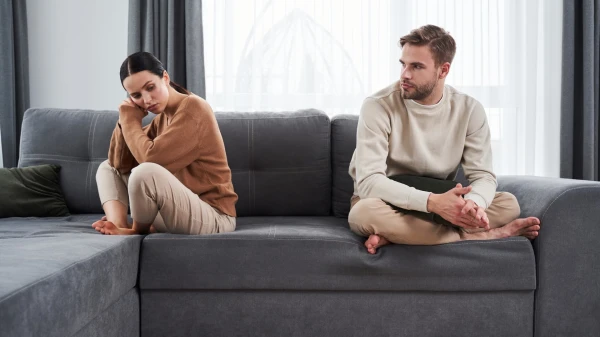


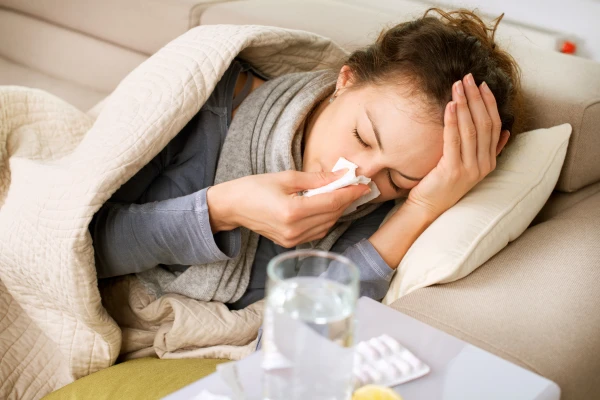
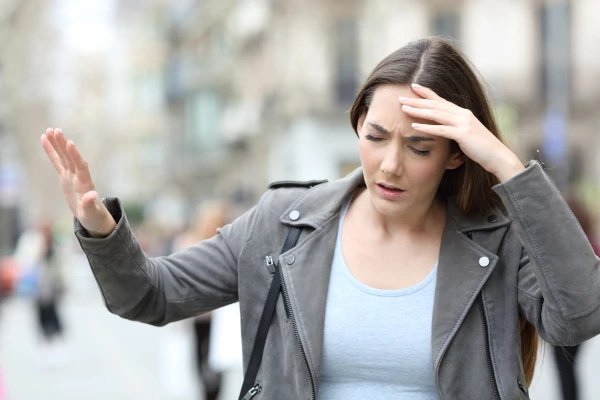
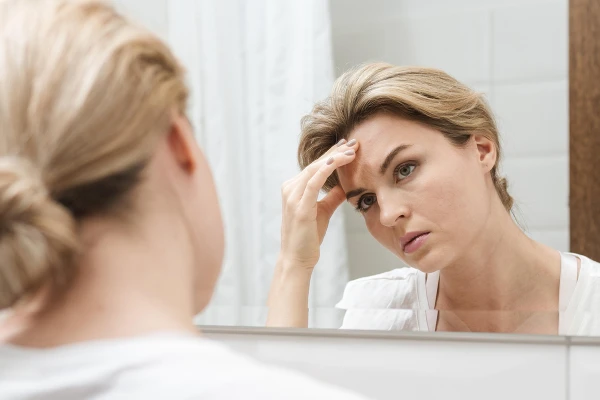




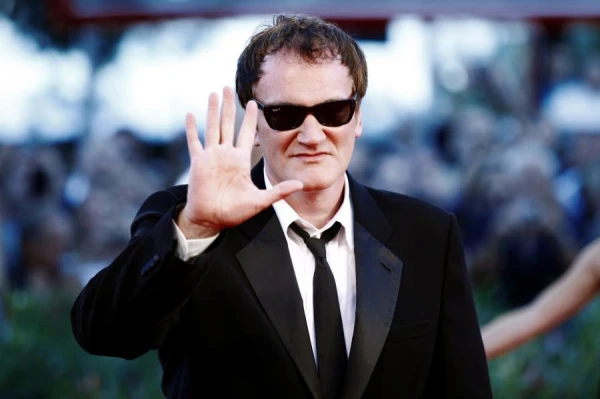


Leave a comment